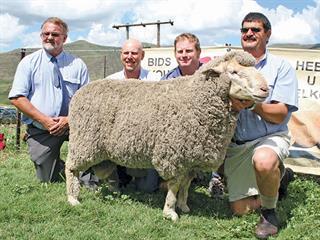The hot and humid conditions experienced this year in many of SA’s summer rainfall areas have been ideal for the explosion of populations of the Culicoides imicola and Culicoides bolitinos midge species that transmit African horse sickness (AHS).
Doug Welsh, the CEO of the African Horse Sickness Trust, says there have been nearly 300 reported cases countrywide since November last year, with the greatest concentration of outbreaks in Gauteng, KwaZulu-Natal and the Eastern Cape.
“Gauteng and KwaZulu-Natal have large populations of horses that are constantly moved in and out of these areas and this increases the odds of horses contracting AHS,” Welsh told Farmer’s Weekly.
“But most of the horses that have died hadn’t been vaccinated against AHS. Owners must realise that vaccinations significantly reduce mortality.”
Meanwhile, the Eastern Cape’s State Veterinary Services has alerted horse
owners in the province to a number of AHS outbreaks in recent months, most of which have been confined to the Cacadu District Municipality and the Amathole District Municipal areas.
Laboratory testing has confirmed that there are three new AHS strains in the Eastern Cape, namely strains 6, 7 and 9. “In order to prevent further spreading of the disease and to protect the AHS-free area in the Western Cape, all movement of horses into and within the Eastern Cape, and to other provinces will be subject to an official permit issued by a state veterinarian or state veterinary office with immediate effect,” a statement reads.
Welsh said that with proper use, AHS vaccines were generally also effective against AHS strains 6, 7 and 9. The African Horse Sickness Trust has urged horse owners to vaccinate their animals against AHS every year and also to implement additional measures to minimise the odds of their horses being bitten by the disease’s
Culicoides vectors. �– Lloyd Phillips
For more information visit
www.africanhorsesickness.co.za









